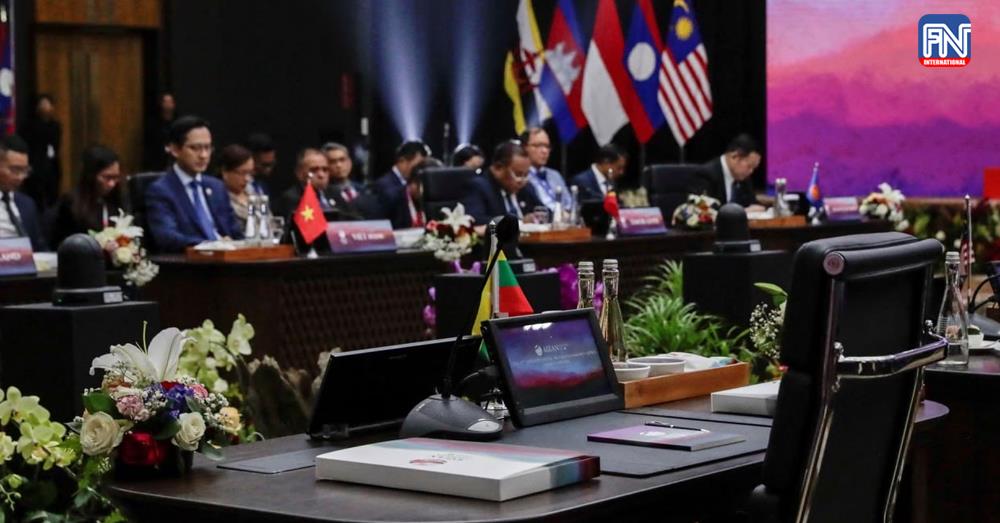JAKARTA, Sept 5 (Reuters) - Myanmar has ceded its turn to chair the Southeast Asian regional bloc, an official confirmed on Tuesday, after the group agreed that an existing but widely criticised peace plan will continue to guide its response to the bloody conflict there.
The Association of Southeast Asian Nations (ASEAN) has faced criticism for its failure to get Myanmar's ruling military to make progress on a five-point peace consensus agreed to shortly after it seized power in a 2021 coup.
Despite scepticism over its effectiveness, ASEAN agreed on Tuesday that the peace plan would continue to guide its approach to Myanmar's political crisis, according to an official document seen by Reuters.
The document also showed that the bloc "urged the Myanmar Armed Forces in particular and all related parties concerned in Myanmar to de-escalate violence and stop targeted attacks on civilians."
Myanmar, which has been gripped by violence and political and economic chaos since the coup, was slated to chair the 10-member regional grouping in 2026.
But regional leaders agreed that the Philippines would assume the role in 2026 instead.
"The Philippines will take over the ASEAN chairmanship for 2026," ASEAN secretary general Kao Kim Hourn told Reuters after the first day of the group's annual summit in Jakarta, adding that the switch was first proposed by Myanmar.
Indonesian Foreign Minister Retno Marsudi said leaders had also agreed to an informal "troika" approach to ASEAN's special envoy on Myanmar, which would see the chair supported by the former and future chairs for continuity.
"A troika was formed to ensure the continuity in terms of handling the issue because everyone understands this situation cannot change in one year," Retno told reporters.
Myanmar's military-appointed ministry of foreign affairs rejected the leaders' decision on the peace plan "as the reviews are not objective and decisions are biased and one-sided."
The ministry said Myanmar was not represented at the summit, and though it was consulted on the decision, "the views and voices of Myanmar are not taken into account."
While the bloc prioritises unity and non-interference in sovereign affairs, differences have emerged as Indonesia has sought to engage all stakeholders in the conflict while Thailand has tried to re-engage with the ostracised junta leaders.
